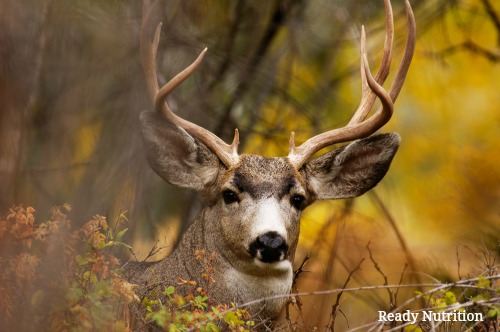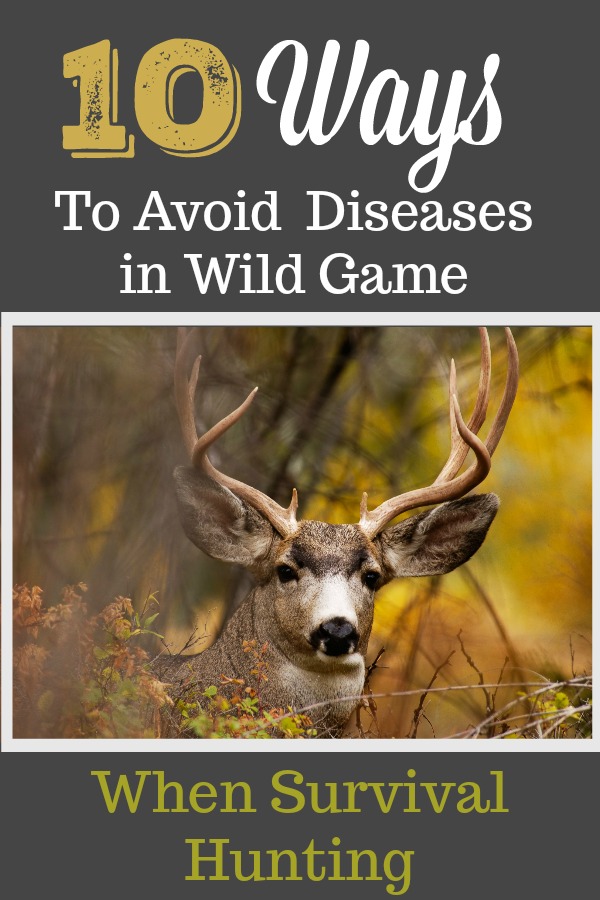
Common Animal Diseases You May Come in Contact With
What we’re referring here to specifically are termed zoonotic infections. These are infections that are concentrated and/or endemic to wild animal species and can be transferred (hence infecting) humans and/or domestic animals.
Some examples here are Tularemia (also known as “rabbit fever”) found in rabbits and hares. It is brought on by ticks (indeed, many of these zoonotic infections are transferred to humans by arthropod vectors (disease-carrying arthropods, such as ticks or fleas), although it can persist into the winter months and infect a human before it kills the host animal.
Brucellosis is another one, and much costlier, as it spreads to livestock, causing cattle to spontaneously abort their young prior to completion of gestation. Brucellosis can also pass to human beings. Back in 1996, Cryptosporidium passed to an individual who used deer scent (a combination of deer urine and deer glands); it was passed through the bottle of scent. Other diseases are Giardia (Giardia lamblia), Trichinosis, and tapeworm infestations.
One of the methods for these transmissions with wild game is the fecal-oral method of contamination. The hunter touches the feces or urine of the slain animal and then manages to ingest it by touching it to the mouth. Another way is when the animal is dressed out, fecal contamination of the meat occurs when the intestines are not controlled properly/tied off effectively, or perforations/cuts are made in the intestines that allow the feces or stool to leak out and leach into the abdominal cavity.
10 Ways To Avoid Diseases in Wild Game
The best way to prevent all this is to know these game animals carry contaminating organisms. Let’s outline a few safety basics for wild game to help you prevent illness.
- If the animal defecated upon being shot, try and clean the feces off the exterior prior to incising and skinning. This is best accomplished with warm water and some type of sanitizer. After a thorough scrubbing, even hand sanitizer (in copious amounts) will aid you in this.
- Tie off that bunghole properly: Really, this is a big one. There is a nifty little tool made of plastic that you insert into the animal’s anus and twist. It latches onto the sphincter and enables you to pull out and cut around the bung. Then, of course, tie it off well and tightly before you complete the skinning and gutting.
- Rubber Gloves: latex, rubber, or what have you. Use them, and do not use them sparingly. When you dress a deer, you usually cut yourself if you’re not very careful. Give yourself the edge and work with the gloves to keep contamination of feces and any blood-borne pathogens to a minimum.
- When butchering, never lay the meat on the ground. Tarps are good, but I prefer a folding metal table. Keep the meat away from all the offal/guts, and any feces.
- Clean up by putting guts and fecal matter in a trash container/trash bag. Don’t just leave it out there in the woods for someone else to walk into.
- Have several washing stations set up, at least two: a “general” scrub station with plenty of soap and water, and a “final” cleaning station for the very end of it, complete with sanitizers and disinfectants.
- Utensils: this is a big one. Don’t be like “Windows” off of John Carpenter’s “The Thing,” who slices his thumb for a blood sample, gives the sample, and wipes the Barlow knife off on his pants leg…both sides of the knife. That won’t cut it (no pun intended). You need to wash and sanitize your skinning and butchering knives after you’re all finished, and especially after gutting…before those knife blades touch your meat.
- Cooking: you can be thorough (boil then burn – that is, boil the meat, and then burn it over the grill), or just ensure that it is cooked very well according to food safety temperatures that vary per type of meat or poultry. If you want to be the “Werewolf of London” and have it rare? It’s your roulette game. Severe gastroenteritis is no laughing matter, and you’ll be a candle burning at both ends for about a week if you follow me.
- Do not allow your pets to eat any of the raw meat or waste products of the wild game! Your pet’s life can depend on it!
- There are many field guides available for the inspection and butchering of game animals. Invest in one so that you’ll know what an animal that is ill looks like…inside and out.
Just a few tips in case we “go dark” and it hits the fan…chances are that you’ll have to hunt to feed your family. Make sure you do it safely. Give yourself an “edge,” as in those times you’ll have enough to worry about without adding food poisoning or disease to the equation. Get into good habits from the beginning, and then they become almost second nature. JJ out!


Life saving advice.. LOVE it.
us out here in the sticks will be hunting the poachers. sure will keep the practice up and the wild pigs and buzzards well fed.